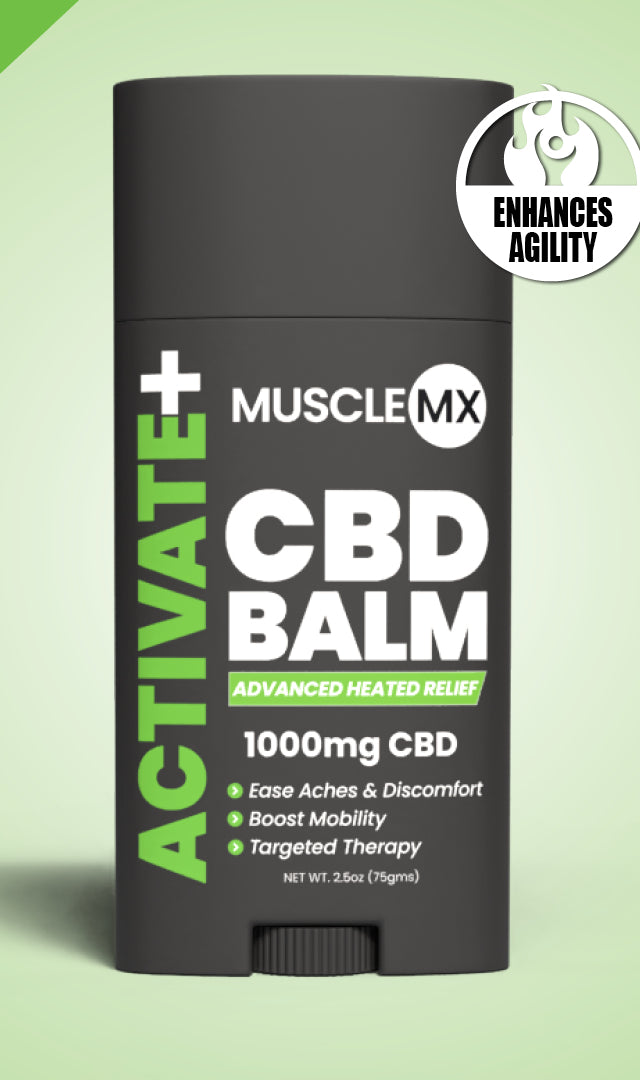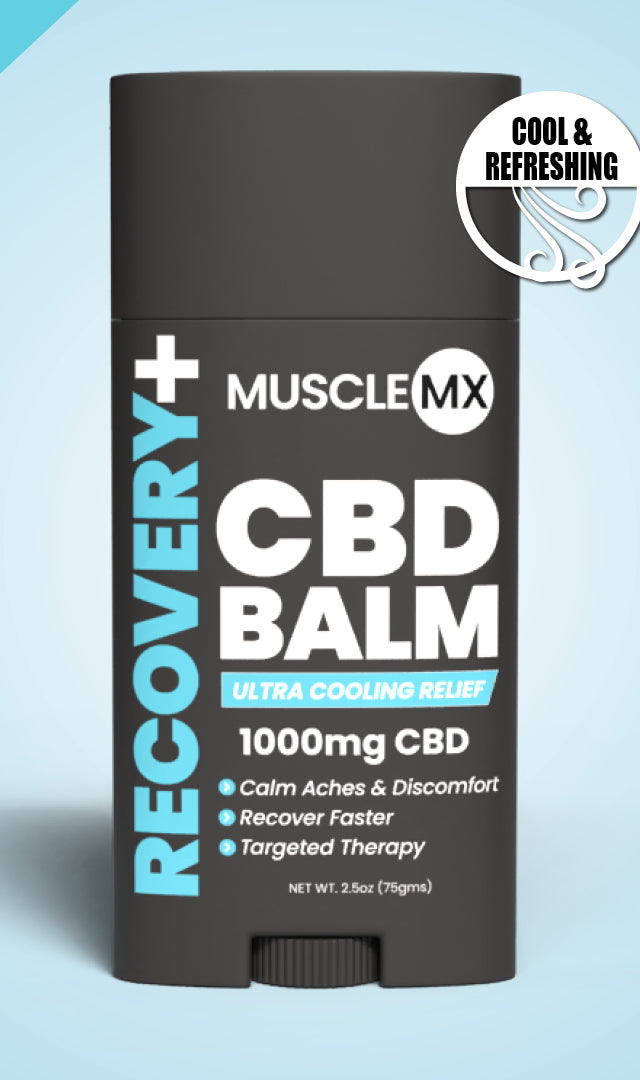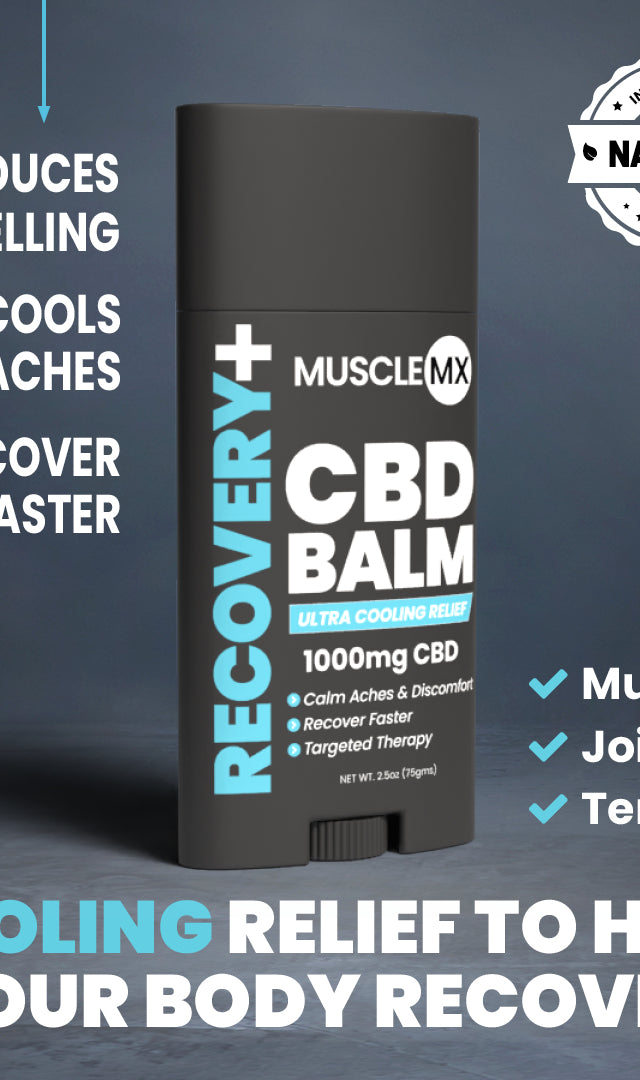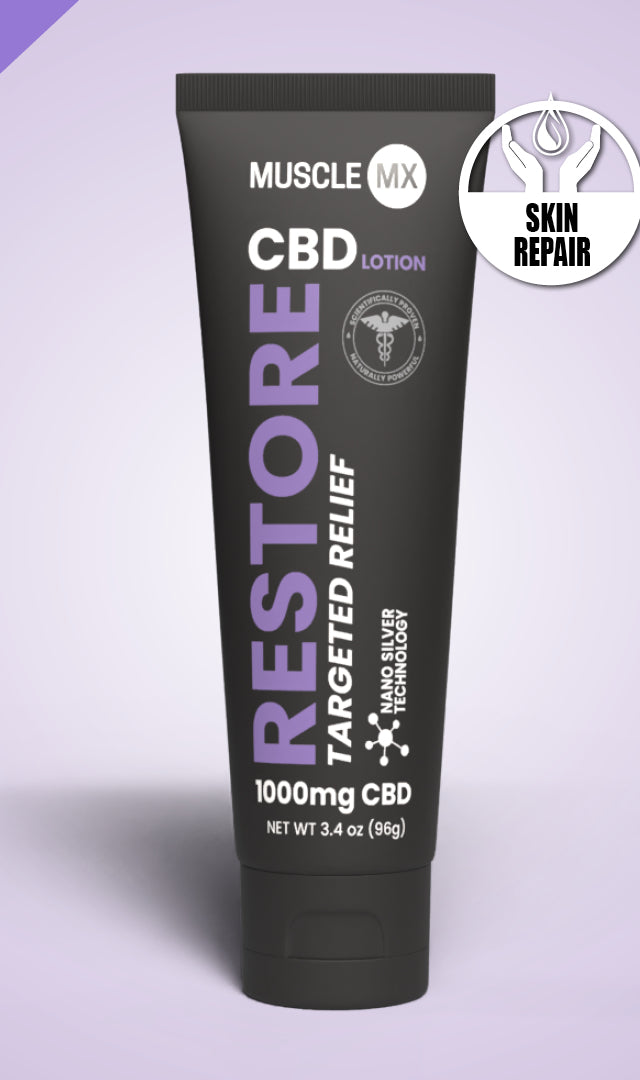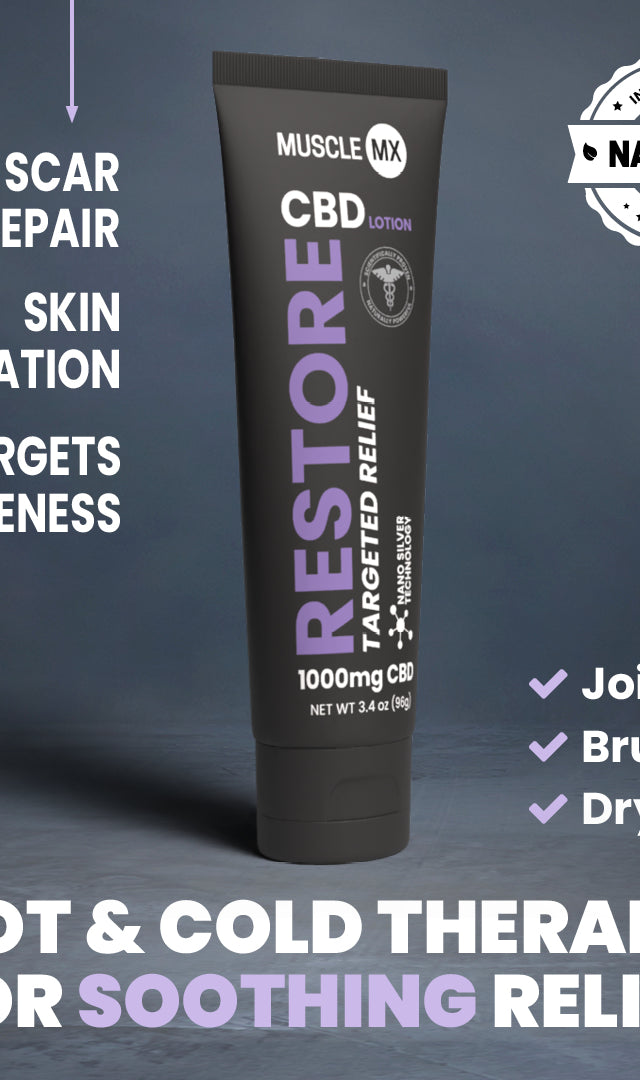CBD for Joint Pain in Seniors: A Doctor's Guide to Natural Relief
Key Takeaways
-
CBD shows promise for senior joint pain by helping reduce inflammation, easing stiffness, and improving daily mobility for those with arthritis and age-related discomfort.
-
Many seniors are turning to CBD as a safer alternative to NSAIDs and opioids, which can pose higher risks like stomach, kidney, or cardiovascular issues with long-term use.
-
Different CBD formats offer different benefits—topicals provide fast, targeted relief, while oils, gummies, capsules, and patches support broader, longer-lasting comfort.
-
Research and user reports note added benefits, including improved sleep, reduced reliance on other pain medications, and better overall quality of life.
-
Safety and quality matter, so seniors should choose third-party-tested products, start low and go slow, and talk with a healthcare provider—especially if taking other medications.
Introduction
CBD's role in treating senior's joint pain has become a hot topic. Today, arthritis affects one in four American adults. Nearly 60 million adults and children across the nation deal with this condition. Their pain often disrupts basic daily tasks. Our medical practice has shown us this growing health issue firsthand.
Many seniors now look to natural pain relief options. A 2020 survey revealed that 20% of Americans aged 65 and above tried CBD oil, showing an increase from 14% in 2019. These numbers make sense given CBD's multiple benefits for arthritis pain. Research shows CBD reduces pain 30% better than standard medication or medical marijuana alone. The results get even better - patients reported a 44% drop in pain levels after CBD use. They also saw better physical function and sleep quality, both improving by 66%.
This piece covers the best CBD options to relieve joint pain, ranging from balms and lotions to oils and edibles. You'll learn about CBD's effects on arthritis symptoms, what it all means, and key factors to check before treatment. The information here will guide your decisions about adding CBD to your wellness routine, whether you face occasional aches or long-term pain.
Why Seniors Are Turning to CBD for Joint Pain
Joint pain becomes a bigger challenge as we age. Many seniors look beyond traditional methods to manage their pain effectively.
The rise of natural remedies in aging populations
The numbers tell a striking story about medication use in older adults. Nearly 90% of older adults take at least one prescription drug regularly. About 36% take five or more different prescriptions. This creates a complex situation. Older people react twice as strongly to medication side effects compared to younger individuals. Their reactions tend to be more severe too.
Pain is a daily reality for many seniors. About 75% deal with chronic pain, and half of all older adults suffer from arthritis. This has led many to search for natural alternatives that might ease their pain with fewer side effects.
Limitations of NSAIDs and opioids
Seniors face major challenges with traditional pain management options. NSAIDs (non-steroidal anti-inflammatory drugs) work well for pain and inflammation, but they come with serious risks:
- Gastrointestinal bleeding (elderly patients face four times the risk)
- Cardiovascular complications (blood pressure can rise by 5 mmHg on average)
- Kidney damage (nephrotoxicity) proves especially dangerous at advanced age
The American Geriatric Society advises against long-term NSAID use, especially after age 75. Yet studies show 97% of chronic pain patients took NSAIDs for more than 21 days straight.
Opioid prescriptions quadrupled in the last decade without making pain any better. These prescriptions have dropped by more than 40% recently. This decline has pushed many seniors to look for other options.
CBD for arthritis in seniors: a growing trend
CBD for arthritis makes sense for seniors who struggle with traditional medications. A 2020 survey showed that 20% of Americans 65 and older tried CBD oil—up from 14% the year before.
Research suggests CBD might reduce inflammation and ease pain with minimal side effects. One success story comes from an arthritis patient who could work full 35-hour weeks after using CBD salve on her hands at night.
Large-scale clinical trials focusing on seniors remain limited. Still, early research hints that CBD might help people fall asleep better and stay asleep longer. It could also lower pain and inflammation from arthritis. This ability to tackle multiple symptoms makes CBD an attractive choice for managing joint pain.
Top Benefits of CBD for Joint Pain Relief
Research shows CBD has several major advantages for seniors who deal with joint discomfort. Let's get into how this natural compound helps with arthritis symptoms.
Reduced inflammation and swelling
CBD works through CB2 receptors connected to the immune system and can stop inflammatory responses. This helps bring down swelling in affected joints and reduces pain levels. Lab studies show CBD has anti-arthritic properties that help symptoms by targeting inflammation-causing cells. A study found that 83% of participants saw their pain improve after using CBD. These results show how CBD can help reduce inflammatory arthritis symptoms.
Improved mobility and physical function
Joint pain often limits physical movement and makes daily tasks hard. Clinical research reveals that 66% of arthritis patients could move better after they started using CBD. The results showed 28.7% of people felt "much better" physically, while 37.4% said they felt "a little better". These improvements in mobility make a real difference in seniors' quality of life when they have arthritis.
Better sleep and relaxation
Chronic pain often disrupts sleep, which creates a cycle where poor rest makes the pain worse. CBD seems to help break this pattern. A study showed 66% of people slept better after using CBD. A 2024 study found that just 15mg of CBD worked as well as 5mg of melatonin to improve sleep. People sleep better because CBD helps them relax while also dealing with their pain.
Less reliance on pain medications
The most promising benefit might be how CBD helps reduce the need for other medications. Studies reveal:
A study showed that more than half of chronic pain patients on opioids (53%) used less or stopped taking them within eight weeks of adding CBD to their treatment. This makes CBD especially valuable for seniors with arthritis since long-term medication use can be concerning.
Best Ways to Use CBD for Arthritis Pain
The right CBD delivery method can make a huge difference for seniors who need joint pain relief. Each method has its own benefits that match different needs.
CBD balm and lotion for targeted relief
Topical CBD products work best when you apply them straight to painful joints. They provide local treatment without getting into your bloodstream. These products' formulas often include extras like menthol for cooling and camphor for warming effects that boost pain relief. In fact, people with arthritis found Muscle MX Restore CBD Lotion and CBD Balms helped manage their symptoms well.
Sublingual oils and tinctures
CBD oil works fast when you put it under your tongue for 60-120 seconds. This lets it get straight into your bloodstream and skips the digestive system. You'll usually feel the effects in 15-45 minutes. The original advice from experts is to start with 5-10mg twice a day and slowly increase the amount if you need to.
Edibles and capsules: pros and cons
CBD gummies are great for consistent daily doses once you know what amount works for you. The downside is they take longer to work (1-3 hours) and your body might not absorb them as well. We learned that gummies aren't the best choice because their doses can be unreliable, and they pack unnecessary sugar.
Transdermal patches for long-term use
Patches release CBD steadily over 12-24 hours, which makes them perfect for chronic conditions. On top of that, they skip the digestive system, so your body uses more of the CBD. These patches work best on soft skin close to your problem joints.
What Seniors Should Know Before Starting CBD
CBD shows promise for joint relief. Knowing what matters helps older adults use it safely and effectively.
Possible side effects and how to manage them
CBD affects seniors differently. Studies show 41% of seniors using it for arthritis report at least one side effect. The good news is that 84% of users call these effects mild. People most often notice a dry mouth (20%), feel drowsy (17%), see changes in appetite (9%), or experience dry eyes (8.6%).
The biggest concerns relate to liver damage and how CBD mixes with medications. Seniors who take blood thinners need to be extra careful. CBD can boost blood thinner levels much like grapefruit juice does.
How to find high-quality CBD products
We looked for products made in the U.S. with ingredients grown here. The best companies follow FDA's good manufacturing practices.
Smart buyers check for a Certificate of Analysis (COA) from independent, certified labs. This document proves the actual CBD content and checks for unwanted substances like THC, pesticides, and heavy metals.
Legal considerations in 2025
The law allows CBD with less than 0.3% THC across the United States. But state rules vary substantially. By 2025, all but one of these 35 states will allow CBD without major limits. Other states keep stricter controls.
Tips for discussing CBD with your doctor
The numbers tell an interesting story - only 45.6% of users talk to their doctors about CBD. These conversations matter, especially when taking common medications like ibuprofen, prednisone, or certain antidepressants.
Start small with 5-10mg twice daily. You can slowly increase the amount if needed. Keep notes about how it affects you.
Final Thoughts
CBD has emerged as a promising option for seniors who deal with joint pain. This piece shows how CBD brings several advantages compared to traditional pain treatments. Many older adults have seen reduced inflammation, better mobility, and improved sleep after adding CBD to their daily routines. CBD's ability to reduce dependence on NSAIDs and opioids makes it a great choice for people worried about medication side effects.
Your specific needs will determine the right CBD product for you. Topical applications work best for targeted relief, and sublingual oils deliver faster systemic effects. Whatever method you choose, the safest way is to start with low doses and slowly increase them.
CBD comes with some things to think over. Side effects can happen, though they're usually mild. Quality products from trusted manufacturers with proper testing certifications are vital. The legal rules have changed over the last several years, and most states now allow CBD use with few restrictions.
A talk with your healthcare provider before starting CBD is a vital step that many seniors skip. This discussion helps spot possible drug interactions and sets the right dosing guidelines for your situation.
Joint pain shouldn't control your golden years. CBD is worth thinking over as part of a complete plan to manage arthritis symptoms. Many seniors have found relief with this natural compound. You might see a real difference in your quality of life too.
FAQ's About CBD for Joint Pain in Seniors
Q: Is CBD effective for managing chronic pain in older adults?
A: Studies suggest that CBD may provide mild to moderate pain relief for various conditions, including chronic pain, in older adults. Its minimal psychoactive effects make it a potentially preferable option for seniors seeking natural pain management solutions.
Q: How does CBD compare to traditional joint pain medications for seniors?
A: While traditional medications like acetaminophen and ibuprofen are commonly used, CBD offers a natural alternative with potential anti-inflammatory properties. Many seniors report reduced reliance on conventional pain medications after incorporating CBD into their routines.
Q: Are there any age restrictions for using CBD?
A: There are no specific age restrictions for CBD use. Many seniors, including those in their 80s, have reported benefits from CBD without experiencing intoxicating side effects. However, it's always recommended to consult with a healthcare provider before starting any new supplement regimen.
Q: What do medical professionals say about using CBD for arthritis?
A: While some doctors recognize CBD's potential benefits for arthritis symptoms, it's important to note that CBD should not replace prescribed medications that prevent joint damage in inflammatory arthritis. Always consult your healthcare provider before adding CBD to your arthritis management plan.
Q: What are the best ways for seniors to use CBD for joint pain relief?
A: Seniors can choose from various CBD products for joint pain relief. Topical creams and balms offer targeted relief, while sublingual oils provide faster systemic effects. Edibles and capsules are convenient for consistent dosing, and transdermal patches can deliver long-lasting relief. The best method depends on individual needs and preferences.
References
https://news.cuanschutz.edu/nursing/cbd-and-the-elderly-what-you-need-to-know
https://www.chosenfamilyhomecare.com/11-surprising-benefits-of-cbd-for-seniors
https://www.arthritis.org/health-wellness/healthy-living/managing-pain/pain-relief-solutions/cbd-for-arthritis-pain
https://www.bouldersportsclinic.com/blog/what-is-cbd-cream-and-how-does-it-work-for-muscle-and-joint-pain
https://www.aarp.org/health/conditions-treatments/cbd-oil-marijuana-health-benefits/
https://www.arthritis.org.au/arthritis/arthritis-insights/managing-pain/efficacy-of-cbd-for-chronic-pain-joint-disease/
https://pmc.ncbi.nlm.nih.gov/articles/PMC7463000/
https://pmc.ncbi.nlm.nih.gov/articles/PMC9400326/
https://www.healthline.com/nutrition/cbd-oil-benefits
https://www.drandrewehmke.com/blog/exploring-the-benefits-of-cbd-a-new-ally-for-arthritis-pain-post-joint-replacement-recovery-and-overall-wellness-43388.html
https://narronline.org/wp-content/uploads/2024/05/Evaluation-of-the-Effects-of-CBD-Hemp-Extract-on-Opioid-Use-and-Quality-of-Life-Indicators-in-Chronic-Pain-Patients-Capano-et-al.-2020.pdf
https://www.medicalnewstoday.com/articles/cbd-cream-for-arthritis







































